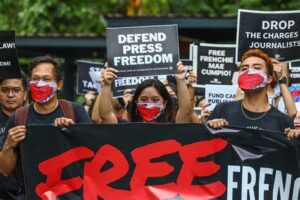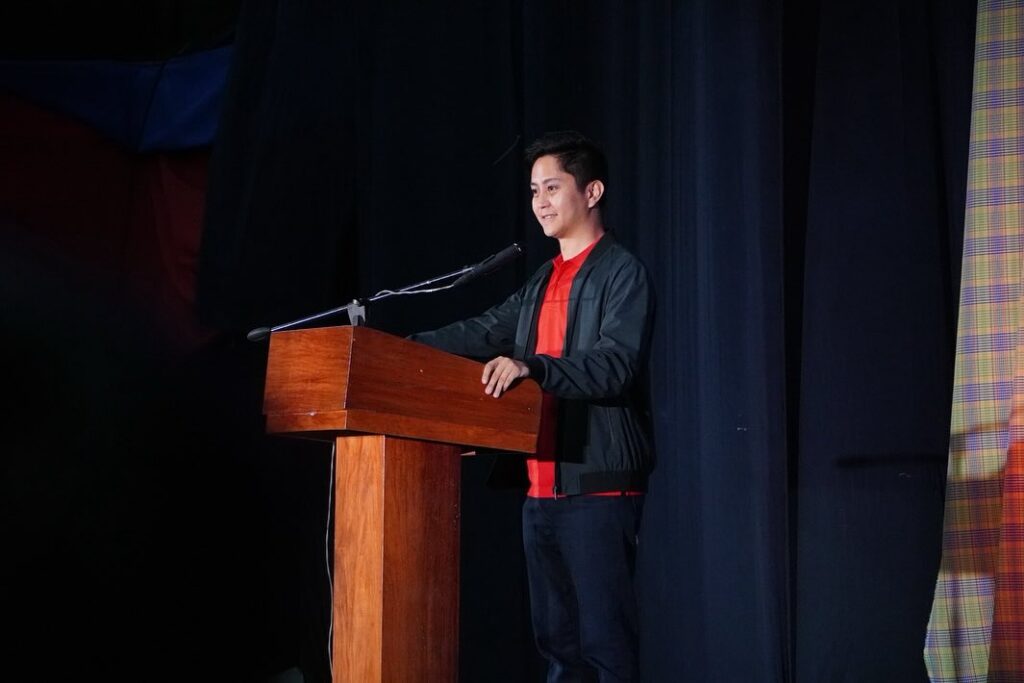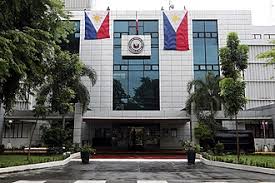The tone may have changed, but the press freedom landscape remains virtually unaltered: In the Philippines, journalists remain under attack for reporting the truth; the people’s right to know remains vastly curtailed; and the practice of journalism remains a dangerous act.
As we mark National Press Freedom Day, let us not be blindsided by the superficial change in tone of the current administration when dealing with the media. Gone are the direct tirades, yet the attacks persist. Amid today’s celebrations, we must underline the fact that the plight of journalists in the Philippines continues to deteriorate under systemic and targeted threats to press freedom, underscored by ongoing harassment, legal battles, and unwarranted imprisonment.
The recent standoff between police and KOJC members in Davao City is just one of the latest grim reminders of the physical dangers facing journalists. This event saw journalists subjected to harassment and physical attacks, highlighting the hazardous conditions under which they operate. Such incidents illustrate not isolated events but a broader, more disturbing trend of hostility toward the media.
Laws remain greatly misused and abused, weaponized to silence dissent and critical reporting. These laws, which include libel and even anti-terrorism legislation, are no longer just tools for litigation but have become mechanisms of intimidation, chilling free speech and press freedom across the archipelago.
Another layer to the law’s weaponization – or rather, bastardization – is the government’s continued blocking of critical media websites, particularly alternative news sites Bulatlat and Pinoy Weekly. This case is a textbook example of “shooting the messenger,” with legal proceedings continue showing how the blocking order, initiated by then National Security Adviser Hermogenes Esperon, stands on shaky legal foundations. The blocking remains despite being a flagrant violation of the constitutionally guaranteed freedom of speech, expression, and of the press.
The ordeal of Frenchie Mae Cumpio, who remains incarcerated on questionable charges, epitomizes the severe repercussions journalists face for their work. Before her arrest, Frenchie Mae served as a community journalist and radio anchor, critically covering stories and the plight of the communities in Eastern Visayas. However, with her arrest, the reportage of such stories has become minimal, and the operations of the regional alternative media she served have become erratic. Despite international outcry and local support for her release, she continues to languish in jail, a testament to the ongoing crackdown on critical voices.
The illusion of a safer environment for the press belies the reality on the ground, particularly in provincial areas, with the Philippines still ranked among the world’s most perilous for journalists. Just two years under Marcos Jr., an alarming number of press freedom violations have already been recorded. The deaths of journalists, including Rey Blanco, Percy Lapid, Cresenciano Bunduquin, and Juan Jumalon, underscore the continuing peril, with his murder forming a crucial test of the government’s resolve to combat impunity in media killings.
This grim backdrop sets the stage for today’s commemoration, urging us to reflect and demand tangible reforms. While Marcos Jr.’s administration pledges to uphold press freedom, actions—or the lack thereof—speak louder than words. The ongoing court battles, the unresolved murders, and the relentless red-tagging paint a troubling picture of what lies beneath the surface of improved diplomatic engagements and presidential decorum.
The visit of UN Special Rapporteur on Freedom of Opinion and Expression, Ms. Irene Khan, earlier this year did little to change the government’s approach to these issues. Despite her extensive consultations and the detailed findings she shared, which urged the government to take concrete actions to safeguard press freedom and human rights, her recommendations have seen little to no implementation. This inaction speaks volumes about the current administration’s commitment to human rights and press freedom.
Ms. Khan’s findings were clear: while there are pockets of positive engagement, the overall landscape for press freedom and civil liberties remains bleak. Her calls for legal and policy reforms, especially concerning the Anti-Terrorism Law and libel laws, remain unheeded, leaving journalists vulnerable to state persecution.
Today, as we advocate for press freedom, we call for a concerted effort to dismantle the oppressive structures stifling free speech and expression. Altermidya Network stands in solidarity with all journalists and media workers in the Philippines and globally who continue to assert having a free, fair, and fearless press.
On National Press Freedom Day, let us move beyond mere recognition of the challenges we face and commit to actionable changes that honor the true spirit of this day. Let us mark this day by committing to secure a future where no journalist, no citizen, fears retribution for speaking out. | via Altermidya




